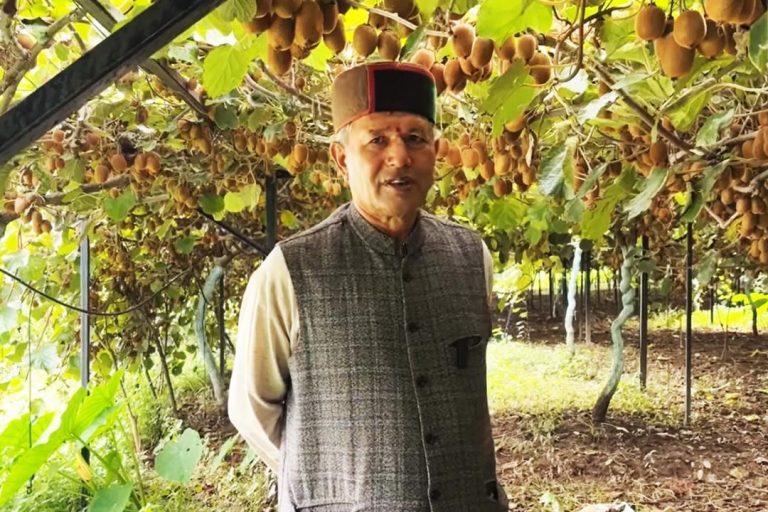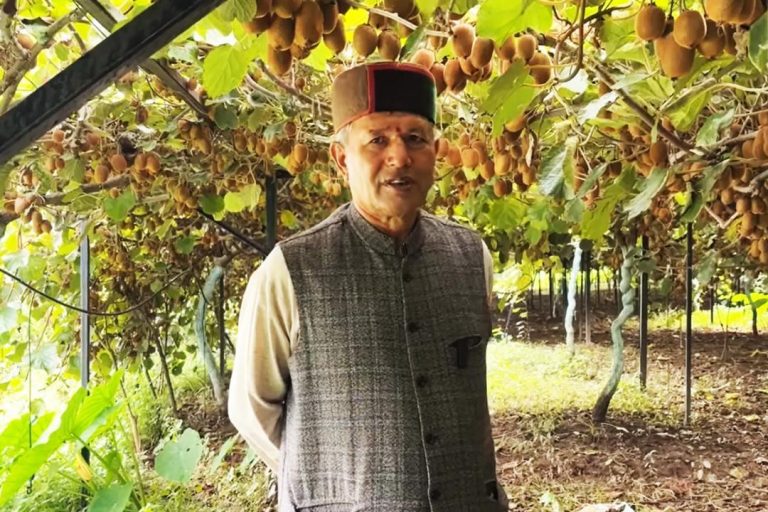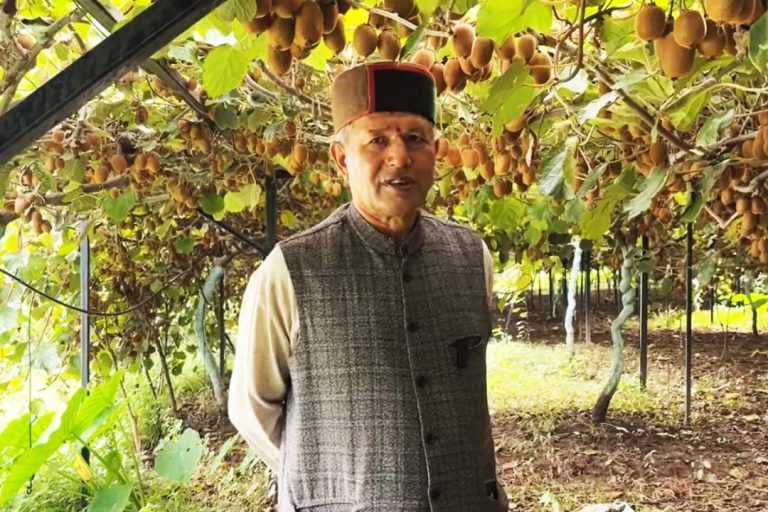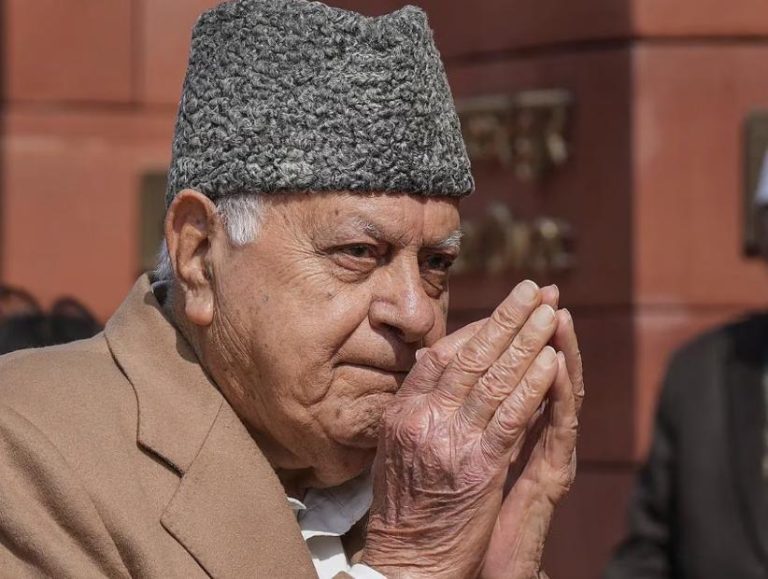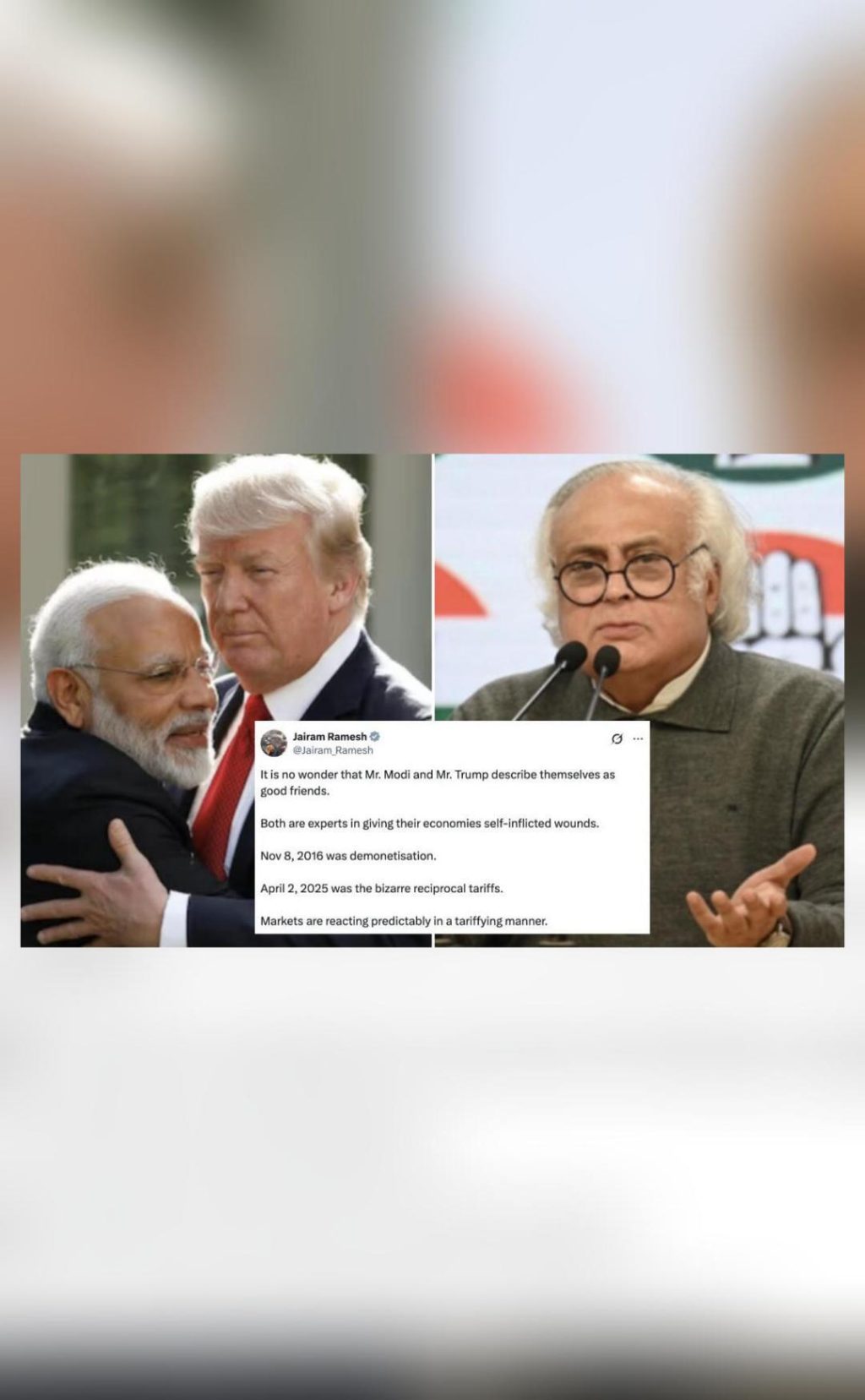
Modi & Trump giving their economies self-inflicted wounds: Jairam
The global markets have been sent into a tailspin after the White House announced new tariffs on several Chinese goods, leading to a massive selloff in stocks. In India, the Sensex opened over 3,900 points lower, while the Nifty opened over 1,000 points below. Amidst the chaos, Congress leader Jairam Ramesh has come out strongly against Prime Minister Narendra Modi and US President Donald Trump, saying that they are “experts in giving their economies self-inflicted wounds”.
Ramesh’s scathing criticism comes after the US imposed 15% tariffs on over 300 billion dollars’ worth of Chinese goods, including smartwatches, smartphones, and laptops. The move has been widely seen as a major escalation in the ongoing trade war between the two countries. The Indian markets, which are heavily reliant on foreign institutional investors (FIIs), have taken a hit as a result, with the Sensex and Nifty plummeting to their lowest levels in months.
In a series of tweets, Ramesh targeted both Modi and Trump, saying that their actions were having a devastating impact on their respective economies. “It’s no wonder that Mr. Modi and Mr. Trump describe themselves as good friends. Both are experts in giving their economies self-inflicted wounds,” he wrote.
Ramesh’s criticism is not without merit. The Indian economy has been struggling to recover from a contraction in the April-June quarter, and the latest tariff announcement from the US has only added to the uncertainty. The rupee has also taken a hit, falling to a record low against the dollar.
Similarly, the US economy has been growing steadily, but the trade war with China has put a dent in its momentum. The tariffs imposed by the US have led to higher prices for American consumers, and have also caused uncertainty for businesses that rely on Chinese imports.
Ramesh’s criticism of Modi and Trump is not just limited to their economic policies. He has also targeted their handling of the COVID-19 pandemic, saying that their actions have been “reckless” and “short-sighted”. “The way they have handled the pandemic is a classic case of cowboy economics,” he wrote. “They have thrown caution to the wind, and are now reaping the whirlwind.”
The Congress leader’s criticism has been echoed by many economists, who have warned that the trade war between the US and China could have far-reaching consequences for the global economy. “The trade war is not just about tariffs, it’s about a fundamental shift in the global economic order,” said one economist. “It’s a zero-sum game, where one country wins and the other loses. And in the end, it’s the consumers who will suffer.”
The Indian government, however, has taken a more measured approach, saying that it is “closely monitoring” the situation and will take all necessary steps to protect the interests of Indian businesses. “We are committed to promoting Indian trade and industry, and will not hesitate to take action if necessary,” said a government spokesperson.
Despite the government’s words, many are worried about the impact of the trade war on the Indian economy. The country is heavily reliant on foreign trade, and a prolonged trade war could have devastating consequences for Indian businesses and consumers. The rupee’s fall to a record low against the dollar has also raised concerns about the country’s ability to pay its foreign debt.
As the trade war between the US and China continues to escalate, it remains to be seen how the Indian economy will be affected. One thing is certain, however – the consequences of the trade war will be felt by consumers and businesses around the world. It is up to leaders like Modi and Trump to find a way to end the trade war and promote global economic growth.
News Source:
https://x.com/Jairam_Ramesh/status/1909116322992009326
